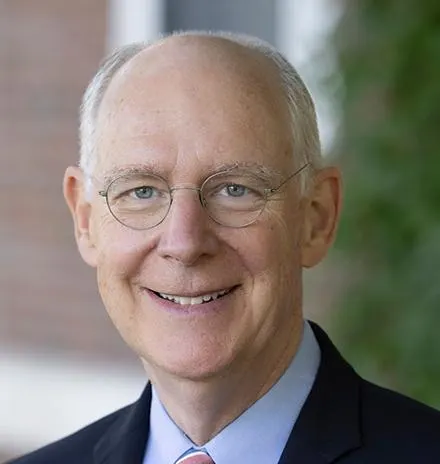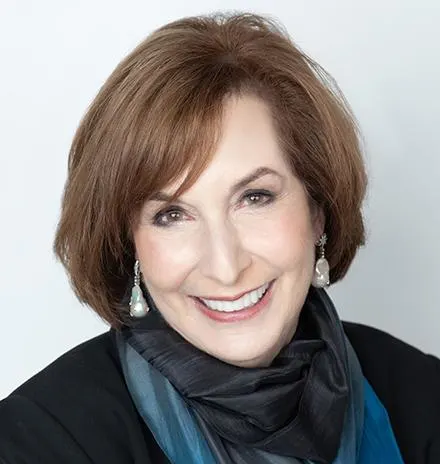"I sold funeral insurance to North Carolina black people. I myself am not black. Like everybody else who was alive fifty-nine years ago, I was so young then, you know? I still feel bad about what went on. My wife says: telling somebody might help. Here lately, worry over this takes a percentage of my sleep right off the top. — So I'm telling you, okay?"
So go the first lines to author Allan Gurganus's short story, "Blessed Assurance." As one of the works of literature that HBS MBA students wrestle with in a powerful—and unusual—elective course on leadership, the story describes the troubling experiences of a young man, Jerry, in his first real job. Jerry sells insurance to the poor on behalf of a large, faceless organization. The insurance he's selling is bogus and he knows it.
His impoverished clients believe, however, that paying a few cents a week, year after year, will eventually earn them a decent funeral by the time they die. The problem, though, is that if they miss even two weeks' worth of payments, they forfeit everything they've contributed to date.
Big Demand
According to Joseph L. Badaracco Jr., the school's John Shad Professor of Business Ethics, "Blessed Assurance" is a story that often leaves a strong impression on the MBA students who take his course, called The Moral Leader. Like many other works of literature in The Moral Leader, both fiction and non-fiction, "Blessed Assurance" serves as a powerful stimulus for discussion and debate among students on the complexities of leadership, in this case specifically on the question of what character really is.
"Here's this young guy," says Badaracco of Jerry in the story. "He's smart. He's ambitious. Like the people he's selling insurance to, he's starting out with nothing in life. He wants to make something of himself; and ultimately he does. But he's got to deal very early in his career with something he thinks is wrong.
"The struggle is partly with his own idealism versus the circumstances in which he's found himself. And it's partly against the policies of a large organization."
Badaracco, talking about the course recently with about 80 HBS alumni during the school's reunion weekend in June, said The Moral Leader is unusual for HBS for several reasons. It began a number of years ago when Robert Coles, Harvard University's James Agee Professor of Social Ethics and the acclaimed author of 50 books including the Pulitzer Prize-winning Children of Crisis, agreed to offer a course he had taught elsewhere at Harvard, where he let students talk about literature.
These are the kinds of people who make a difference in the world, not just the saints.
—Joseph L. Badaracco Jr.
"Robert Coles came; the reception was very positive," Badaracco said. "But as kind of a wandering prophet, he moved on." Yet there was still a strong demand for the course at HBS. Badaracco jumped into the ring. Starting this fall, HBS senior lecturer Sandra Sucher will teach a section as well.
Although The Moral Leader adheres to a pedagogical framework, it eschews the traditional HBS case method involving a manager and his or her business problems. Instead, it focuses on works of literature, mostly but not exclusively fiction, as well as classic moral philosophy by greats such as Aristotle and Emmanuel Kant. Using the books as a starting point, students work together to dig deeply into what Badaracco considers the three central, "inescapable" elements of leadership: character, accountability, and pragmatism.
The Moral Leader is not likely to help students run numbers or do brand management when they leave HBS, he admitted. But intense discussions about the often-conflicting demands of leadership do leave a mark. As Badaracco said to the alumni, "Try to find a way to think about a serious problem without thinking about character, or accountability, or—if you're a practical person rather than a theoretician—about getting things done; about pragmatism."
'A Struggle'
Leadership is, in part, a struggle of flawed human beings, said Badaracco. And a huge amount of the struggle that the books' characters experience is with themselves. This becomes clear when students read about Jerry, the despairing salesman in "Blessed Assurance," and Okonkwo, a village leader in Nigeria in Chinua Achebe's novel Things Fall Apart, struggling against the arrival of the colonialists. It's also true in another book the students read, Robert Bolt's play A Man for All Seasons, about Sir Thomas More and his long battle with King Henry VIII.
"It's not as if these people have perfectly formed and satisfactory characters, and then march out into the world with its surprises and vagaries and adversaries," Badaracco said. "You see them trying to figure out who they are and what they really care about over the course of these books."
Many students who first enroll in The Moral Leader think that ethics and responsibility in organizations is a straightforward matter, he said. They start out believing that people have a moral compass which points them in the right direction; and the only difficult part is then doing what they know they should do, or persuading others that it's the right thing to do. What students find disconcerting and spend a lot of time discussing, he observed, are the situations in the books where someone's moral compass is pointing in two different directions at once. One of the passages from Kant that students come upon is the statement "From the crooked timber of humanity, no straight thing was ever made."
"I remind [students] of the Old Testament view of human beings; fundamentally, permanently, almost fatally flawed unless they're redeemed by something outside themselves," Badaracco said. The course gradually tries to get students to accept that human beings "have warts and complications and failures—not just in the distant past but ongoing, as a reality.
"These are the kinds of people who make a difference in the world," Badaracco added. "Not just the saints."

